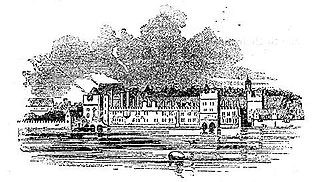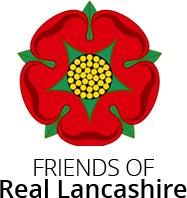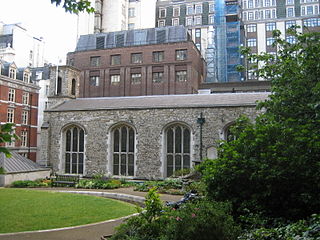
"God Save the King" is the national anthem of the United Kingdom and the royal anthem of each of the British Crown Dependencies, one of two national anthems of New Zealand, and the royal anthem of most Commonwealth realms. The author of the tune is unknown and it may originate in plainchant, but an attribution to the composer John Bull has sometimes been made.
"O Canada" is the national anthem of Canada. The song was originally commissioned by Lieutenant Governor of Quebec Théodore Robitaille for the 1880 Saint-Jean-Baptiste Day ceremony; Calixa Lavallée composed the music, after which French-language words were written by the poet and judge Sir Adolphe-Basile Routhier.

Duke is a male title either of a monarch ruling over a duchy, or of a member of royalty, or nobility. As rulers, dukes are ranked below emperors, kings, grand princes, grand dukes, and sovereign princes. As royalty or nobility, they are ranked below princes and grand dukes. The title comes from French duc, itself from the Latin dux, 'leader', a term used in republican Rome to refer to a military commander without an official rank, and later coming to mean the leading military commander of a province. In most countries, the word duchess is the female equivalent.

The dukedom of Lancaster is a former English peerage, created three times in the Middle Ages, which finally merged in the Crown when Henry V succeeded to the throne in 1413. Despite the extinction of the dukedom the title has continued to be used to refer to the reigning monarch of the United Kingdom in relation to the County Palatine of Lancaster and the Duchy of Lancaster, an estate held separately from the Crown Estate for the benefit of the sovereign.

The Savoy Palace, considered the grandest nobleman's townhouse of medieval London, was the residence of prince John of Gaunt until it was destroyed during rioting in the Peasants' Revolt of 1381. The palace was on the site of an estate given to Peter II, Count of Savoy, in the mid-13th century, which in the following century came to be controlled by Gaunt's family. It was situated between the Strand and the River Thames. The Tudor-era Savoy Chapel was located on the former estate property and carried on the name; today, the name is carried on by the Savoy Theatre and Savoy Hotel, again both located on the former estate. In the locality of the palace, the administration of law was by a special jurisdiction, separate from the rest of the county of Middlesex, known as the Liberty of the Savoy. French monarch John II of France died here after an illness.

The Duchy of Lancaster is a private estate of the British sovereign. The estate has its origins in the lands held by the medieval Dukes of Lancaster, which came under the direct control of the monarch when Henry Bolingbroke, the then duke of Lancaster, ascended the throne in 1399. In 1461 King Edward IV confirmed that the Duchy would be inherited by the monarch, but held separately from the Crown Estate, the other assets which belong to the monarch.

The Duchy of Cornwall is one of two royal duchies in England, the other being the Duchy of Lancaster. The eldest son of the reigning British monarch obtains possession of the duchy and the title of Duke of Cornwall at birth or when his parent succeeds to the throne, but may not sell assets for personal benefit and has limited rights and income while a minor.
A royal peculiar is a Church of England parish or church exempt from the jurisdiction of the diocese and the province in which it lies, and subject to the direct jurisdiction of the monarch.
A high sheriff is a ceremonial officer for each shrieval county of England and Wales and Northern Ireland or the chief sheriff of a number of paid sheriffs in U.S. states who outranks and commands the others in their court-related functions. In Canada, the High Sheriff provides administrative services to the supreme and provincial courts.

Friends of Real Lancashire (FORL) is an apolitical pressure group affiliated to the Association of British Counties calling for the wider recognition of the historic boundaries of Lancashire in England. Its chairman is Philip Walsh.

The Savoy was a manor and liberty located between the Liberty of Westminster, on two sides, the Inner and Middle Temple part of City of London and the River Thames. It was in the county of Middlesex. Named for the Savoy Palace, it came to be held by the Duchy of Lancaster, and was also known as the Liberty of the Duchy of Lancaster. The duchy continues to have land holdings within the area. The manor, enjoying the status of a liberty, comprised the precinct of the Savoy, the southern half and detached south-west of the parish of St Clement Danes and about three quarters of St Mary le Strand as it only, in a tiny part, extended north of the Strand whereas those parishes straddled this ancient road.

"Rufst du, mein Vaterland" is the former national anthem of Switzerland. It had the status of de facto national anthem from the formation of Switzerland as a federal state in the 1840s, until 1961, when it was replaced by the Swiss Psalm.

The King's Chapel of St John the Baptist in the Precinct of the Savoy, also known as the King's Chapel of the Savoy, is a church in the City of Westminster, London. Facing it are 111 Strand, the Savoy Hotel, the Institution of Engineering and Technology and – across the green to its side – the east side of Savoy Street. The chapel is designated as a Grade II* listed building.
There is no agreed national anthem of England but it is usually defaulted in the absence of agreement to be "God Save the King." In 2016 some MPs felt that England should have its own distinct anthem with the result that there have been discussions on the subject in the UK Parliament.

Lancashire Day is the county day of historic Lancashire in England. It is held on 27 November to commemorate the day in 1295 when Lancashire first sent representatives to Parliament, to attend the Model Parliament of King Edward I. Lancashire Day was first held in 1996.

"God Defend New Zealand" is one of two national anthems of New Zealand, the other being "God Save the King". Legally the two have equal status, but "God Defend New Zealand" is more commonly used. Originally written as a poem, it was set to music as part of a competition in 1876. Over the years its popularity increased, and it was eventually named the second national anthem in 1977. It has English and Māori lyrics, with slightly different meanings. Since the late 1990s, the usual practice when performed in public is to perform the first verse of the national anthem twice, first in Māori and then in English.

A loyal toast is a salute given to the sovereign monarch or head of state of the country in which a formal gathering is being given, or by expatriates of that country, whether or not the particular head of state is present. It is usually a matter of protocol at state and military occasions, and a display of patriotic sentiment at civilian events. The toast is usually initiated and recited by the host before being repeated by the assembled guests in unison; the composition varying between regions and types of gathering. There is sometimes a tradition of smashing a glass used for a loyal toast, so that no lesser toast can be made with it.

The monarchy of Denmark is a constitutional institution and a historic office of the Kingdom of Denmark. The Kingdom includes Denmark proper and the autonomous territories of the Faroe Islands and Greenland. The Kingdom of Denmark was already consolidated in the 8th century, whose rulers are consistently referred to in Frankish sources as "kings". Under the rule of King Gudfred in 804 the Kingdom may have included all the major provinces of medieval Denmark.
Duke, in the United Kingdom, is the highest-ranking hereditary title in all five peerages of the British Isles. A duke thus outranks all other holders of titles of nobility.

New Zealand is one of only two countries in the world—the other being Denmark—with two official national anthems of equal status. The traditional anthem "God Save the King" is generally used only on royal and viceregal occasions. "God Defend New Zealand" is more commonly used on occasions when the national identity of New Zealand is the focus, such as sports events, where it is sung with English and Māori verses. On a few occasions both anthems may be used.















